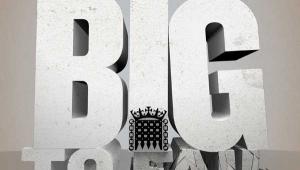A government's ability to respond quickly to economic shocks depends on its basic beliefs. This might be a problem in a coalition holding very different views
The first Coalition Budget is almost upon us. It might not be the Osborne/Laws production that was first advertised but it is still the first really juicy morsel for us to chew over as a result of our new way of governing.
Most expect Sir Alan Budd and his new Office for Budget Responsibility to conclude that things are much worse than expected. There will be pressure for radical action, including in areas coalition politicians said they had ‘no plans’ for in the election campaign but never ruled out, such as VAT rises and benefit freezes.
It will be a tense time in the Treasury and Prime Minister David Cameron is already trying to shape expectations by talking about cuts that will ‘affect every single person in our country’.
But in economic management terms, the Budget is a pretty easy moment for the Conservative-Liberal Democrat government – because the real art of managing an economy is how you respond to events. It is not a one-move game but involves constantly reacting to a moving target. You have to adjust to new data and to new developments, to move fast when there is a crisis. You have to have a view of how the economy really works and of what really matters.
And that makes coalitions tough – because the basic values and understanding of how economies work inevitably diverge between the parties.
It is relatively easy to put a coalition agreement together because that is a static deal, where compromises can be made. Of course, there will be debates going on over the pace and scale of deficit reduction and the balance between tax increases and spending cuts. But it should be no surprise that the desire for power has made what in the election campaign looked like unbridgeable gaps vanish into thin air.
But the future is always uncertain and, right now, the progress of the economy is very uncertain. Things will go off beam. And what economists want to know is how will this new government react – and will it react in a united way?
Broadly speaking, most Conservative economic thinking still seems to see the deficit and debt as the root of virtually all our economic problems. In the Tory version of history, the harsh Budget of 1981 was not an event that prolonged and deepened the degree of recession, but the vital ingredient in the strong growth later on in that decade. The lesson is to cut and cut fast whatever the external circumstances.
So, if there is a slowdown in growth, a double dip, or a surge in unemployment, Chancellor George Osborne’s instinct will be to carry on with cutting in the belief that that will help revive confidence in the economy. Equally, if there were upside news, it is likely that the Conservatives would want to accelerate the timescale for reducing the deficit – not use the money to put a bit more into public services.
But is that really where the LibDems are? Maybe Deputy Prime Minister Nick Clegg is and short-lived chief secretary to the Treasury David Laws was. And maybe Laws’ replacement Danny Alexander will get there too. But Business Secretary Vince Cable is an unlikely deficit hawk and would probably want to respond more sensitively to events as they unfolded. And he is not alone in the LibDem ranks.
Arguably, the differences go deeper and revolve around attitudes to growth. The most likely problem facing the UK is prolonged slow growth in the European Union hitting our export markets hard. In all probability the pro-Europe LibDems – Cable, Clegg and Energy and Climate Change Secretary Chris Huhne – would want Europe to adopt a strategy for growth alongside its fiscal consolidation plans.
But is Osborne going to try to convince his German counterpart of this? Does he believe that growth is a major part of the solution to the deficit or that the problem is simply a public sector that got too big? These are important debates and they matter when you have to make choices.
Government is never easy. It is hard enough to agree on economic policy when the world is not moving, even within one party. But some sort of certainty on ‘reaction functions’ helps the markets and business plan, and grounds their expectations. With the coalition put together so fast, we are in uncharted waters. We do not know how the parties will respond to shocks, when forecasts prove wrong, when Europe stutters. It is instinct, beliefs about how the economy works and values, not bits of paper with compromise agreements, that matter then.
The fun has only just begun.
Dan Corry is a former senior adviser on the economy at Downing Street











